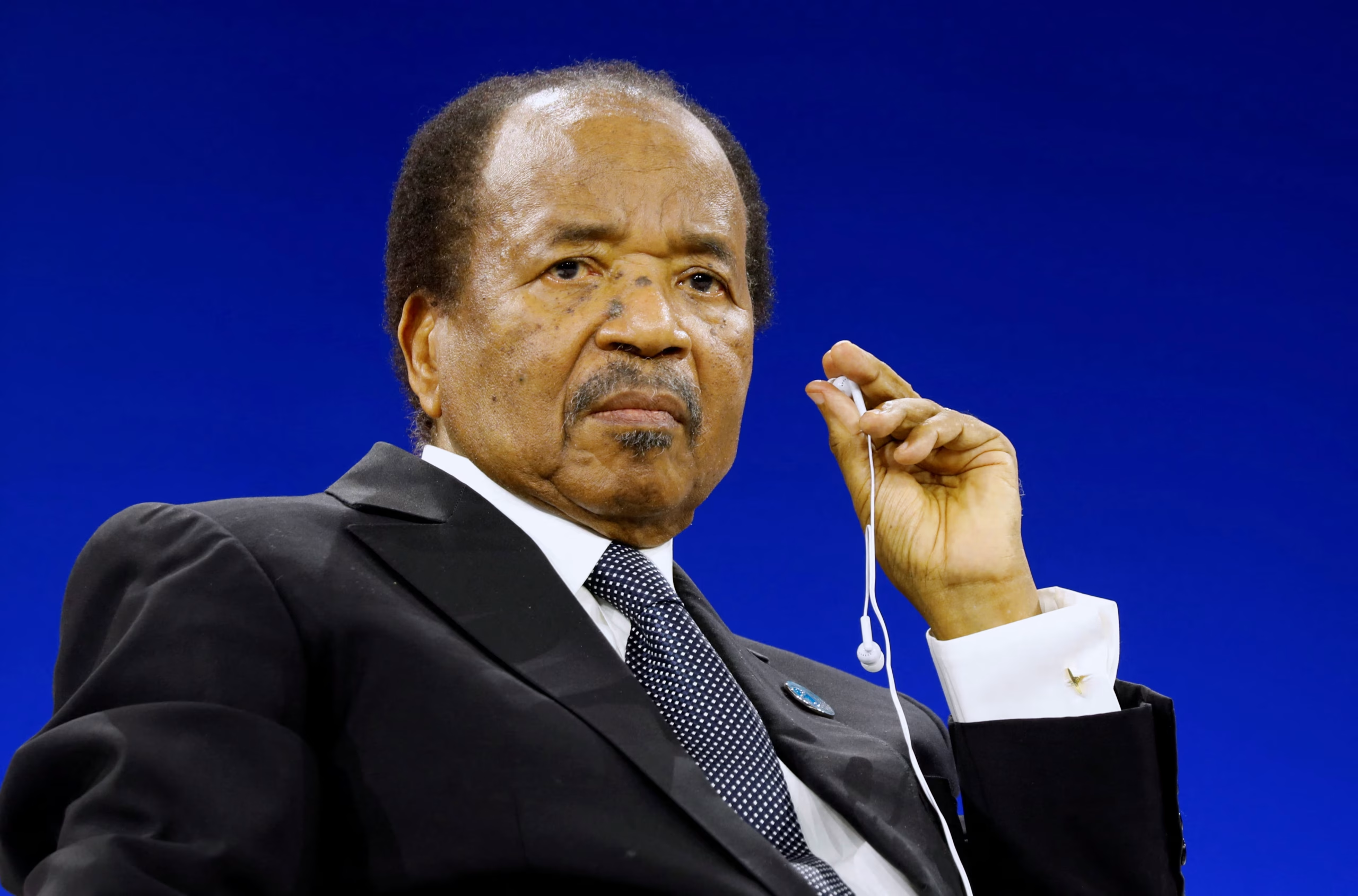At 92 years old, Biya is Africa’s second-longest serving head of state and one of the world’s oldest sitting leaders. If re-elected, he would be 99 years old by the end of his next seven-year mandate.
Paul Biya Announces Bid for Eighth Presidential Term

In a move that has reignited debates about leadership longevity and political reform in Africa, President Paul Biya officially announced on Sunday, July 13, 2025, that he will seek an unprecedented eighth consecutive term in Cameroon’s upcoming presidential election scheduled for October 12, 2025.
At 92 years old, Biya is Africa’s second-longest serving head of state and one of the world’s oldest sitting leaders. If re-elected, he would be 99 years old by the end of his next seven-year mandate.
President Biya’s decision to run again was shared on his official social media accounts, reaffirming his determination to continue serving the country. Having been in power since 1982, Biya’s tenure has been marked by a consolidation of power under the Cameroon People’s Democratic Movement (RDPC), the ruling party since independence.
The 2008 constitutional amendment that removed presidential term limits paved the way for Biya’s extended rule. Despite his advanced age and frequent health concerns, including prolonged absences from the country, Biya remains a dominant political figure in Cameroon’s landscape.
Political Landscape and Opposition
The 2025 election is shaping up to be a critical moment for Cameroon, a nation of nearly 30 million people grappling with deep-rooted political and socio-economic challenges.
READ MORE: Is Lack of Discipline the ANC’s Downfall?
The country continues to face the unresolved Anglophone crisis, a separatist conflict in the English-speaking northwest and southwest regions that has displaced thousands and destabilised the region for years. Additionally, economic hardships and governance concerns weigh heavily on the electorate.
Biya’s main challengers include:
- Maurice Kamto (71), leader of the Cameroon Renaissance Movement (MRC), a former law professor and lawyer who ran in 2018 and remains a vocal opposition figure despite past arrests and political repression.
- Issa Tchiroma (75), a former loyalist minister who recently broke ranks with Biya’s regime, criticising it as disconnected from the aspirations of young Cameroonians.
- Bello Bouba Maigari (78), another former ally turned opposition candidate, is currently serving as Minister of Tourism and president of the National Union for Democracy and Progress (UNDP).
- Akere Muna (72), an internationally recognised anti-corruption lawyer running under the Univers party.
- Joshua Osih, leader of the Social Democratic Front (SDF), has declared his readiness to contest and represent the main opposition party.
The entry of former regime stalwarts Tchiroma and Maigari into the race signals cracks within the ruling establishment and reflects shifting political dynamics.
Concerns
Cameroon’s electoral process has long been criticised by international observers and opposition groups for a lack of transparency, alleged fraud, and suppression of dissent. The 2018 election, which Biya won with over 70% of the vote, was marred by low turnout and violence linked to the Anglophone conflict.

Opposition leaders, including Kamto, have faced intimidation and arrests. In recent months, Kamto’s campaign activities have been hindered by police blockades and restrictions, raising fears of an uneven playing field.
Biya’s announcement has drawn mixed reactions. Supporters praise his experience and stability, while critics express concern over the country’s need for generational change and fresh leadership to address pressing crises.
READ MORE: Frustrated Benghazi Residents Urge UN to Back New Political Path in Libya
The election will test Cameroon’s democratic institutions and the resilience of its political system. With a history of dominant-party rule and limited alternation of power, many analysts view the 2025 vote as pivotal for the country’s future trajectory.
As Cameroon approaches the October 12 election, the spotlight will be on voter turnout, electoral fairness, and the government’s handling of security challenges, especially in the Anglophone regions. The international community and civil society groups continue to call for transparent and credible elections that reflect the will of the Cameroonian people.
President Biya’s bid for an eighth term underscores the enduring nature of his leadership but also highlights the urgent demand for political reforms and inclusive governance in one of Africa’s most complex political landscapes.
Subscribe to Our Newsletter
Keep in touch with our news & offers
Thank you for subscribing to the newsletter.
Oops. Something went wrong. Please try again later.










